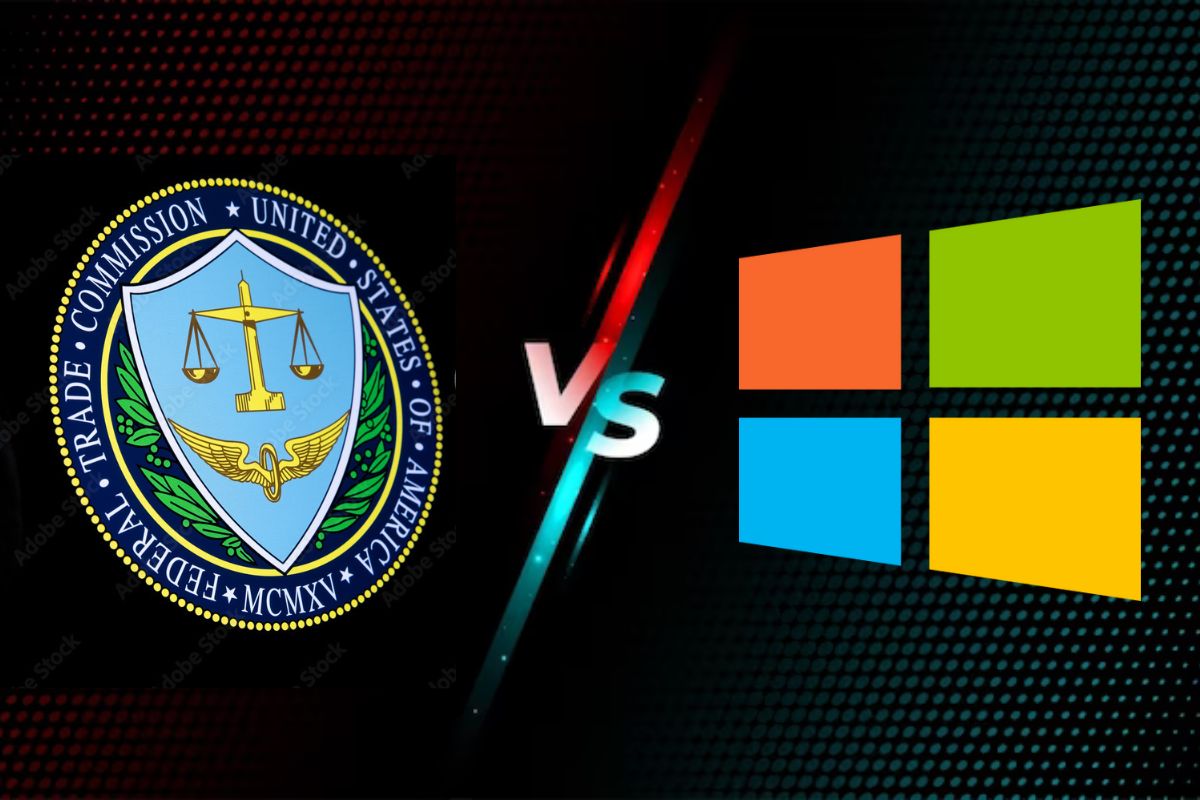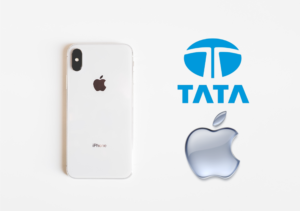There’s a big fight happening in court between the US Federal Trade Commission (FTC) and Microsoft. They’re arguing about whether Microsoft should be allowed to buy a company called Activision Blizzard. This fight is a really important deal for the gaming industry because it could change a lot of things.
The US Federal Trade Commission (FTC) attempted to make a case that Microsoft’s acquisition of Activision Blizzard would negatively impact consumers and reduce competition in the console gaming market. On the other hand, Microsoft defended the purchase, arguing that it was a necessary strategic step to address Sony’s prevailing dominance in the industry.
A significant trial for Microsoft began on June 22, and it carries immense importance for the company’s future. Microsoft’s CEO, Satya Nadella, and Activision Blizzard’s CEO, Bobby Kotick, will be present in court as witnesses. Additionally, Jim Ryan, who oversees Sony’s PlayStation business, will provide his testimony via video.
Sony has expressed concerns regarding the potential impact of the Microsoft and Activision Blizzard deal. They fear that if Microsoft acquires Activision Blizzard, popular games like Call of Duty could become exclusive to Xbox consoles, limiting their availability on PlayStation platforms.
Sony has not been convinced by Microsoft’s assurance that Call of Duty will continue to be accessible on PlayStation consoles for an extended period. Sony holds the belief that Microsoft has a track record of entering exclusive agreements after acquiring other game studios, causing them to question Microsoft’s intentions in this deal.
In a significant development, Federal Judge Jacqueline Scott Corley has made a ruling against the Federal Trade Commission’s efforts to halt Microsoft’s $69 billion acquisition of Activision Blizzard until a comprehensive review could take place. This ruling clears the way for the companies to finalize the deal before the July 18 deadline, potentially setting the stage for significant transformations in the gaming landscape in the years ahead.
In the ruling presented today, Judge Corley stated the following:
Microsoft’s acquisition of Activision has been hailed as the largest in the history of the tech industry. Given its magnitude, it was subjected to scrutiny, and that scrutiny has yielded positive outcomes. Microsoft has made explicit commitments, both in writing, in public, and in court, to ensure that Call of Duty remains available on PlayStation for the next decade, alongside Xbox. Furthermore, Microsoft has forged an agreement with Nintendo to bring Call of Duty to the Switch console. Additionally, they have entered into multiple agreements to make Activision’s content accessible through various cloud gaming services.
The role of this court, in this case, is limited in scope. It is tasked with determining whether, despite these existing circumstances, the merger should be halted or even terminated while awaiting the resolution of the FTC administrative action. After careful consideration, the court concludes that the FTC has not demonstrated a likelihood of prevailing in its claim that this particular vertical merger within this specific industry would substantially reduce competition. On the contrary, the evidence in the record suggests that consumers will benefit from increased access to Call of Duty and other Activision content. Therefore, the request for a preliminary injunction is rejected.
On June 22nd, Microsoft is set to appear in court, facing the Federal Trade Commission (FTC) in a crucial five-day case that will shape the destiny of its proposed $68.7 billion acquisition of Activision Blizzard. The FTC is pursuing a preliminary injunction in an attempt to halt Microsoft from concluding the deal prior to the commencement of a distinct legal challenge on August 2nd.
There is a lot at stake in this acquisition. Microsoft faces a deadline of July 18th to finalize the proposed deal; otherwise, it will be obligated to pay Activision Blizzard a hefty breakup fee of $3 billion or renegotiate the terms. The Federal Trade Commission (FTC) is not the sole regulatory body attempting to obstruct the acquisition. In April, the UK’s Competition and Markets Authority (CMA) decided to block the deal. Microsoft is currently appealing that decision and the case is scheduled to begin in late July.
In case you missed the initial day of the FTC v. Microsoft trial, you can catch up on the testimony provided by Xbox Game Studios chief Matt Booty and the revealing Sony email right here.
On the second day, Xbox chief Phil Spencer took the stand, offering hours of testimony that delved into Microsoft’s rivalry with Sony, their exploration of acquiring Zynga to enhance mobile gaming prospects, and the acquisition of Bethesda by Microsoft following concerns about the potential exclusivity of Starfield on PlayStation. For a comprehensive summary of day two, you can find it right here.
On the third day of proceedings, notable testimonies were provided by Sony’s PlayStation chief, Jim Ryan, an executive from Nvidia, as well as economic experts representing both the FTC and Microsoft. This day shed further light on the significant email revelation, and Sony’s perspectives on Game Pass, and provided insights into the intricate contract negotiations between Sony and Microsoft regarding Call of Duty. For a detailed summary of day three, you can find it available here.
Day four marked a significant milestone in the trial. Activision CEO Bobby Kotick testified and provided insights into the presence of Call of Duty on the Switch platform as well as the history of Activision. Later in the afternoon, Microsoft CEO Satya Nadella took the stand and addressed inquiries regarding Microsoft’s cloud aspirations and his personal inclination to eliminate console exclusives if feasible. Brief testimony was also given by Nvidia’s Jeff Fisher and Microsoft’s economics expert, Dr. Dennis Carlton.
Today marks the commencement of day five, which also serves as the concluding part of the hearing. Key testimonies scheduled for today include Xbox CFO Tim Stuart, Microsoft CFO Amy Hood (primarily through written declaration), and Steve Singer, Senior Vice President of developer relations at Nintendo, who will provide their statements through video deposition.
Following a comprehensive five-day hearing in the Northern District Court of California, the decision was reached. The hearing featured testimonies from influential industry figures, including Xbox chief Phil Spencer and Sony Interactive Gaming CEO Jim Ryan, unveiling significant revelations throughout the proceedings. The US Federal Trade Commission (FTC) attempted to make a case that Microsoft’s acquisition of Activision Blizzard would negatively impact consumers and reduce competition in the console gaming market. On the other hand, Microsoft defended the purchase, arguing that it was a necessary strategic step to address Sony’s prevailing dominance in the industry.
A significant portion of the proceedings centered around the discussion of whether high-end console gaming, specifically Xbox and PlayStation, should be treated as distinct entities from PC, Nintendo Switch, and other hardware platforms. Furthermore, deliberations took place regarding the influence of franchises like Call of Duty, examining whether their popularity and profitability alone could significantly shift momentum from one company to another. Notably, during his testimony, Phil Spencer made a commitment to the court, raising his hand and assuring that he would not remove Call of Duty from the PS5. This pledge came amidst ongoing negotiations between Microsoft and Sony concerning future licensing terms for the franchise, conducted behind closed doors.
During the trial, testimonies brought to light strategic maneuvering from both Microsoft and Activision, along with intriguing insights into other potential acquisitions and exclusive agreements. Court documents disclosed that prior to pursuing Activision, Microsoft had explored the possibility of acquiring Japanese publishers Sega and Square Enix. Moreover, corporate emails revealed that Microsoft executives frequently deliberated on securing exclusive rights to new games, such as Bethesda Software’s upcoming Indiana Jones project, as a means to rival Sony’s competing deals.
In her decision, Judge Corley dismissed the examples provided by the FTC, deeming them unconvincing as they did not involve live service or multiplayer games like Call of Duty. Instead, she pointed to the continued availability of Minecraft on multiple platforms as evidence to the contrary. Referring to Microsoft’s past conduct following similar transactions, including the ZeniMax acquisition, the judge noted that the FTC’s argument overlooked the acquisition of Mojang and Minecraft.



